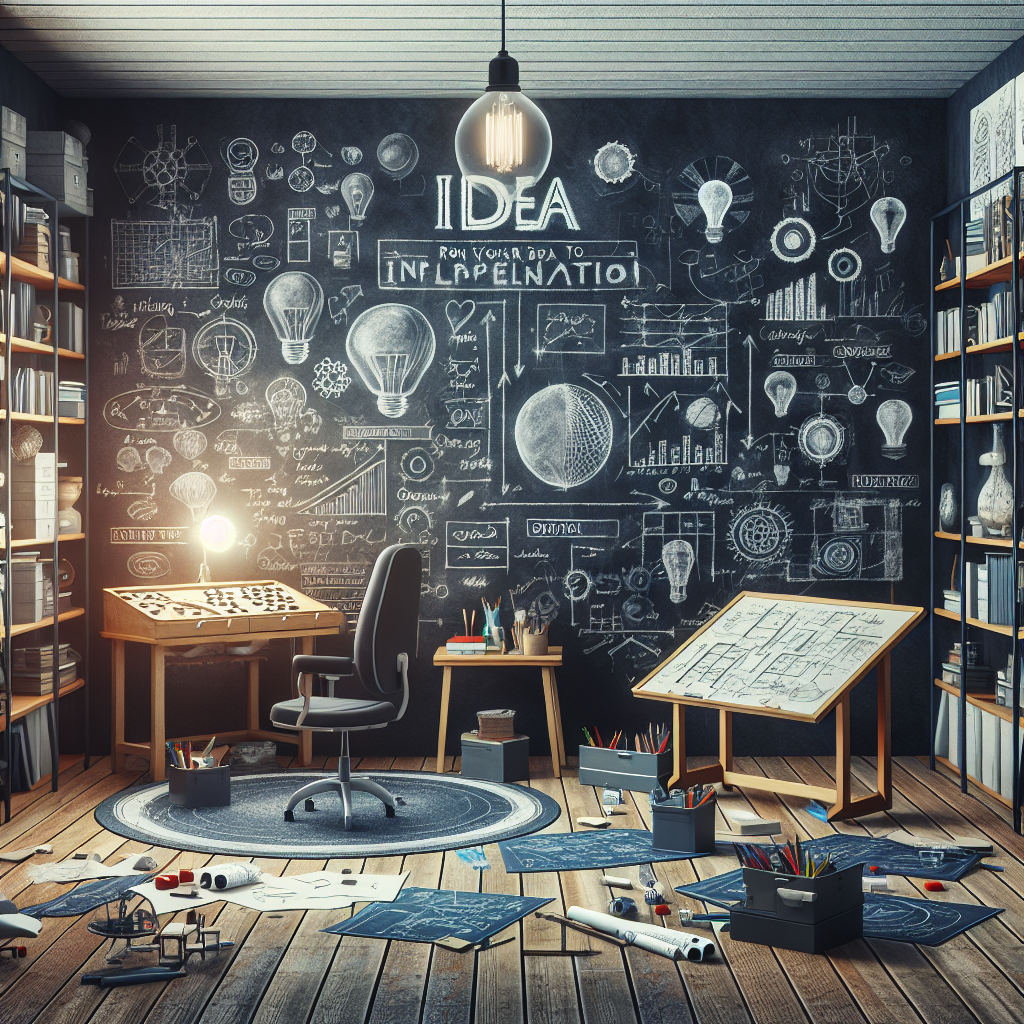Deskripsi meta: Panduan praktis untuk mengubah ide-ide menjadi kenyataan melalui ruang inspiratif yang memotivasi dan mendorong implementasi.
Ruang Inspiratif: Dari Ide ke Implementasi
-
Table of Contents
- Ruang Inspiratif: Dari Ide ke Implementasi
- Introduction
- The Meaning of Ruang Inspiratif
- The Rise of Ruang Inspiratif in Indonesia
- Co-working Spaces: A Catalyst for Collaboration
- Incubators and Accelerators: Nurturing Startups
- Maker Spaces: Empowering Creativity
- Creative Hubs: Nurturing Artistic Expression
- Government Support for Ruang Inspiratif
- Success Stories from Ruang Inspiratif
- Conclusion
Ruang Inspiratif: Dari Ide ke Implementasi

Introduction
Indonesia, with its rich cultural heritage and diverse population, has always been a hub of creativity and innovation. From art and design to technology and entrepreneurship, Indonesians have consistently demonstrated their ability to turn ideas into reality. This article explores the concept of “Ruang Inspiratif” or inspirational space in Indonesia, and how it plays a crucial role in transforming ideas into successful implementations.
The Meaning of Ruang Inspiratif
Ruang Inspiratif, which translates to “inspirational space” in English, refers to physical or virtual environments that foster creativity, collaboration, and innovation. These spaces provide individuals with the necessary tools, resources, and support to transform their ideas into tangible outcomes. Ruang Inspiratif can take various forms, such as co-working spaces, incubators, maker spaces, and creative hubs.
The Rise of Ruang Inspiratif in Indonesia
In recent years, there has been a significant rise in the number of Ruang Inspiratif in Indonesia. This can be attributed to several factors, including the growing startup ecosystem, increased government support for innovation, and the rise of the creative economy. These spaces have become a breeding ground for entrepreneurs, artists, designers, and technologists to collaborate, experiment, and bring their ideas to life.
Co-working Spaces: A Catalyst for Collaboration
One of the most popular forms of Ruang Inspiratif in Indonesia is co-working spaces. These spaces provide individuals and small teams with affordable and flexible workspaces, as well as access to a community of like-minded individuals. Co-working spaces not only offer a physical space to work but also facilitate collaboration and knowledge sharing through events, workshops, and networking opportunities. Some well-known co-working spaces in Indonesia include GoWork, EV Hive, and Kolega.
Incubators and Accelerators: Nurturing Startups
Incubators and accelerators are another essential component of the Ruang Inspiratif ecosystem in Indonesia. These programs provide startups with mentorship, funding, and access to a network of industry experts. Incubators typically support early-stage startups, helping them refine their business models and develop their products or services. Accelerators, on the other hand, focus on scaling existing startups and preparing them for rapid growth. Some prominent incubators and accelerators in Indonesia include GK-Plug and Play, Ideabox, and Digitaraya.
Maker Spaces: Empowering Creativity
Maker spaces are physical workshops equipped with tools, machinery, and materials for individuals to create, prototype, and experiment. These spaces are particularly popular among artists, designers, and engineers who require access to specialized equipment. Maker spaces not only provide the necessary tools but also foster a sense of community and collaboration. Tinkerlust Lab, Bandung Makerspace, and FabLab Jakarta are examples of maker spaces in Indonesia.
Creative Hubs: Nurturing Artistic Expression
Creative hubs are dedicated spaces that support artists, designers, and creative professionals in their artistic endeavors. These hubs provide studios, exhibition spaces, and networking opportunities for individuals to showcase their work and collaborate with others. Creative hubs play a vital role in promoting the creative economy in Indonesia and attracting international attention to Indonesian art and design. Some well-known creative hubs in Indonesia include Komunitas Salihara, Rumah Sanur Creative Hub, and Jogja National Museum.
Government Support for Ruang Inspiratif
Recognizing the importance of Ruang Inspiratif in driving innovation and economic growth, the Indonesian government has taken several initiatives to support these spaces. The Ministry of Communication and Information Technology has launched programs such as “1000 Digital Startup Movement” and “Nexticorn” to nurture startups and provide them with the necessary resources. Additionally, the Creative Economy Agency (BEKRAF) has been actively promoting the development of creative hubs and providing funding and support to creative entrepreneurs.
Success Stories from Ruang Inspiratif
The impact of Ruang Inspiratif in Indonesia can be seen through numerous success stories. For example, Go-Jek, one of Indonesia’s most successful startups, started its journey in a co-working space. The company leveraged the collaborative environment and support from the community to grow rapidly and disrupt the transportation industry. Another success story is the Bandung Makerspace, which has nurtured numerous talented designers and engineers who have gone on to launch their own successful businesses.
Conclusion
Ruang Inspiratif has become a driving force behind Indonesia’s creative and entrepreneurial ecosystem. These spaces provide individuals with the necessary resources, support, and collaborative environment to turn their ideas into successful implementations. Co-working spaces, incubators, maker spaces, and creative hubs have all played a crucial role in nurturing innovation and fostering economic growth. With continued government support and the growing interest in entrepreneurship and creativity, Ruang Inspiratif in Indonesia is set to thrive and produce even more success stories in the future.







